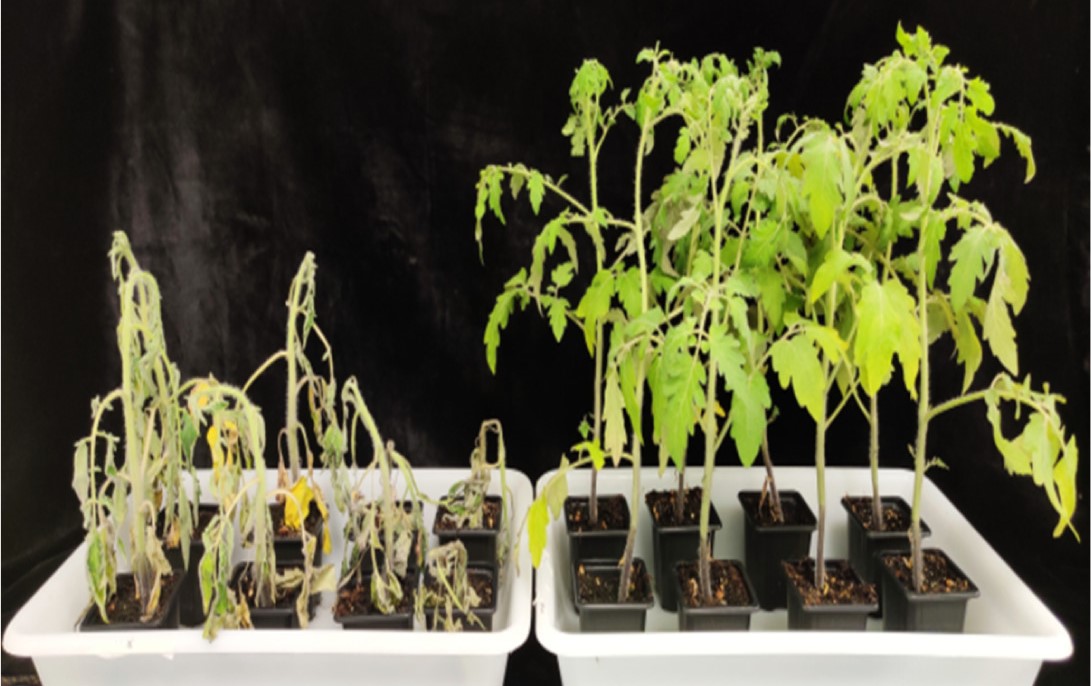Research topics
Our team is interested in understanding the molecular mechanisms that control the interaction between pathogenic bacteria and plants to develop sustainable strategies to prevent and fight bacterial invasions in the field.
Research in the lab focuses on 2 main areas:
Understanding the genetic determinants of bacterial wilt: Bacterial wilt caused by the wide-host range pathogen Ralstonia solanacearum is a devastating disease affecting over 200 plant species from disparate families including potato, tomato, peanut, eucalyptus, clove, etc. Management of bacterial wilt remains difficult due to R. solanacearum aggressiveness, its broad geographical distribution and its long persistence in soil and water. We study the R. solanacearum genes that are essential to complete its life cycle both inside and outside its plant hosts. These include genes that control bacterial virulence and the functions required for its long survival in soil. We expect to identify key bacterial determinants that can be used as targets to control the disease.
Understanding the molecular mechanisms that control defense responses to bacterial invasion in plants: Resistance to R. solanacearum is multigenic and regulated by very complex characters. In the lab we study the mechanisms underlying inducible physico-chemical barriers posed by resistant plants to R. solanacearum as well as the protease complement involved in neutralizing the bacterium in the apoplast and xylem of infected plants. We also study the mechanisms regulating the hypersensitive response in plants, in particular the role of the metacaspase AtMC1 as a cell death protease and a proteostasis regulator.

